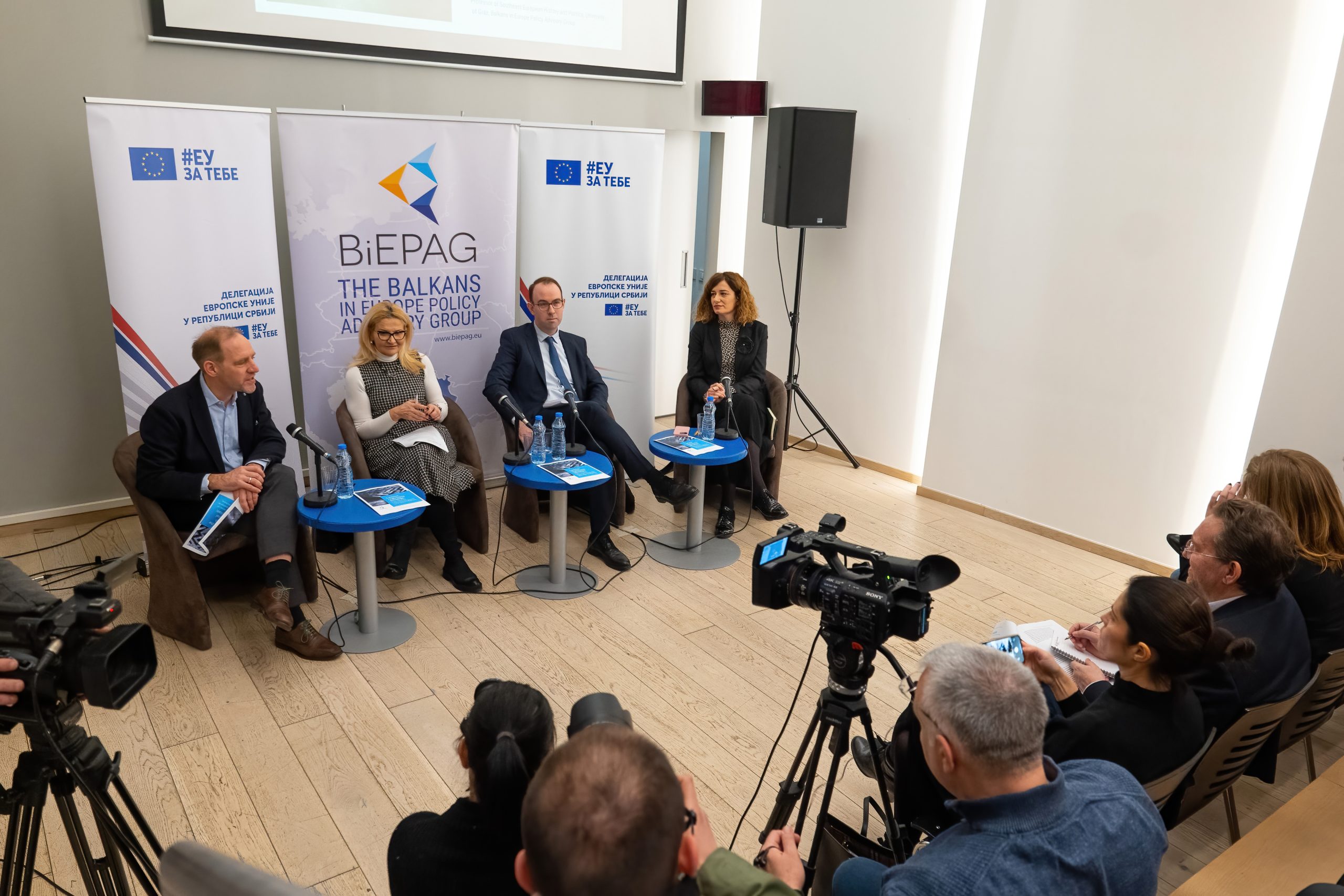
The latest policy brief published by the Balkans in Europe Policy Advisory Group - Through the Labyrinth of Regional Cooperation. How to Make sense of Regional Integration in the Western Balkans was launched at the public discussion which was organised on February 9th, 2023 at the EU Info Centre in Belgrade.
Panelists:
· Tanja Miščević, Minister of European Integration in the Government of Serbia
· Jovana Marović, Former Deputy Prime Minister and Minister of European Affairs in Government of Montenegro, and Balkans in Europe Policy Advisory Group Member
· Richard Grieveson, Vienna Institute for International Economic Studies, and Balkans in Europe Policy Advisory Group Member
The panel which was moderated byBiEPAG's Coordinator Florian Bieber, Director of Centre for Southeast European Studies was focused on the policy recommendations of BiEPAG's paper which closely examines the existing regional initiatives to see how these, economy-driven approaches, have the potential to approximate the region closer to the goal of EU membership by means of addressing the key problems the region is facing – corruption, state capture and authoritarian tendencies.
This year marks two decades since the Western Balkans officially embarked on their road to EU membership. Likewise, it observes a decade since the latest member joined the Union, Croatia, which is the longest period without EU expansion since the first enlargement in 1973.
On the other hand, the EU’s support for regional cooperation and (intra)regional economic integration in the Western Balkans is long-standing, having emerged in response to the Yugoslav wars in the second half of the 1990s. Moreover, since the launch of the Stabilisation and Association Process in 1999, regional cooperation has become a central part of EU accession conditionality, in addition to the Copenhagen accession criteria formulated in 1993.
This EU “two-track strategy” towards the Western Balkans meant combining EU bilateral relations and enlargement conditionality, with the promotion of EU standards through EU-sponsored parallel structures and multilateral intra- regional initiatives. The basic idea was that these two processes of EU and intra-regional integration could be mutually reinforcing, since regional integration among Western Balkan countries would prepare them for smoother integration with the EU in the future.
The EU has been innovative in finding ways to keep the countries of the region interested in pursuing reforms in the absence of the actual enlargement. These include strengthening regional integration, through two parallel processes, the Berlin Process initiated by German chancellor Merkel in 2014, and the Open Balkan a regional initiative of Serbia, Albania and North Macedonia to deepening economic cooperation.
The panelists discussed the different political, economical and geopolitical aspects of the aforementioned initiatives, opening a discussion on whether the region can institutionally sustain the overlapping initiatives, what works and does not work, the need for economic integration of the region into the EU common market and the importance of the existing models of regional cooperation.
The BiEPAG's brief is available in Albanian, English and Serbian at the following links:
ALB. https://bit.ly/3leBrmh
SRB. https://bit.ly/3DRRZa3
ENG. https://bit.ly/3Ycy4La